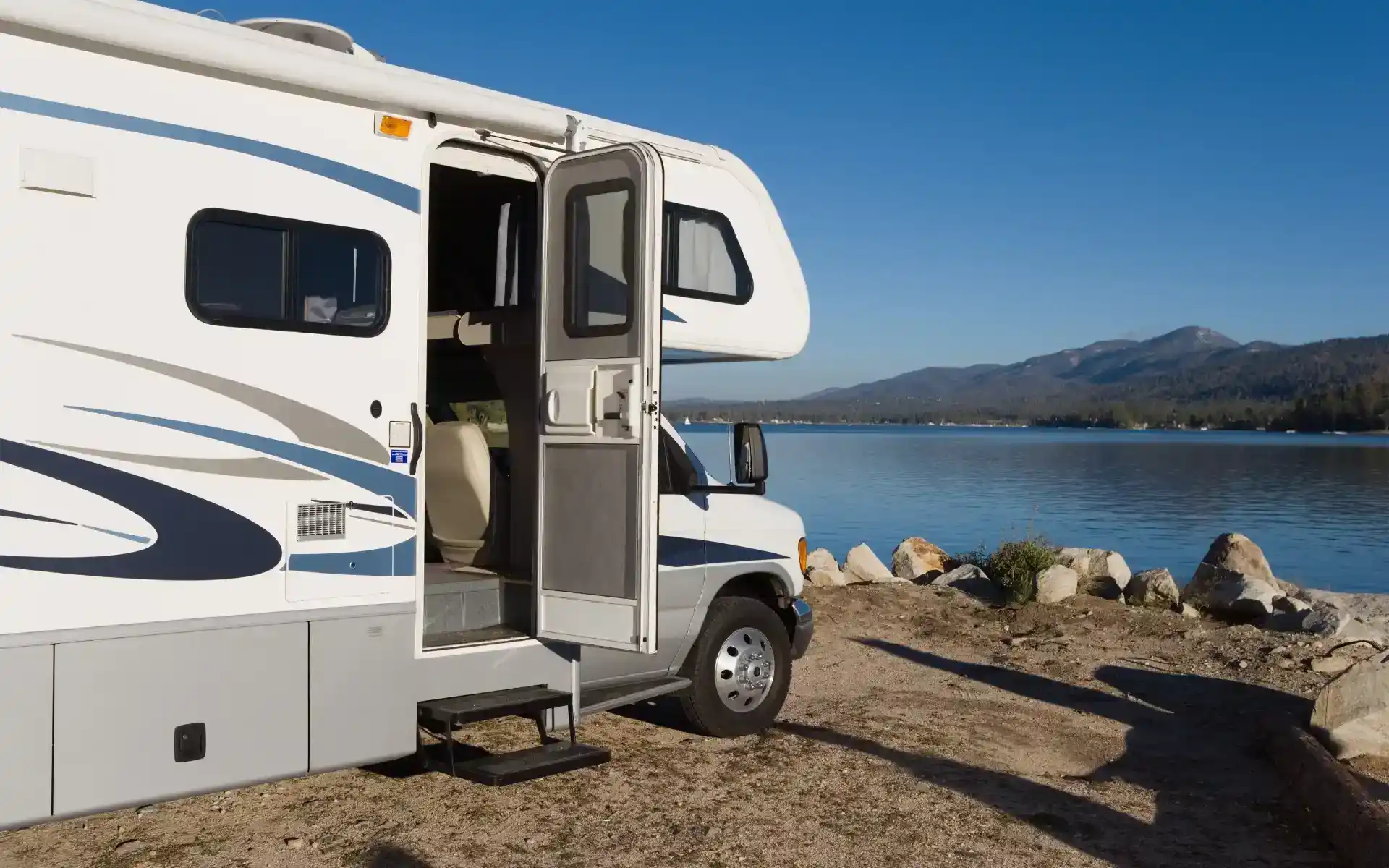
RV tires typically last 5-7 years, depending on usage and maintenance. Keep your journey safe—book a tire inspection today!
If you're wondering, how long do RV tires last, the answer isn't always straightforward. Many assume tread depth is the main factor. But for most RV owners, tire lifespan has more to do with time than wear.
Unlike daily drivers, RV and travel trailers spend more time parked. That means tires age even when not in motion. Over time, rubber breaks down due to sunlight, weather, and lack of use. That’s why even used tires with good tread may not be safe.
Most experts recommend replacing RV tires every 5 to 7 years. This is often called the tire year life. Always check the date on the sidewall to be sure.
It’s also important to know what kind of RV you have. Motorhomes often have larger, more durable tires than towables like trailers. Towables may need replacements sooner due to different stress and weight distribution.
Knowing your RV type helps you make better decisions—and stay safer on the road.
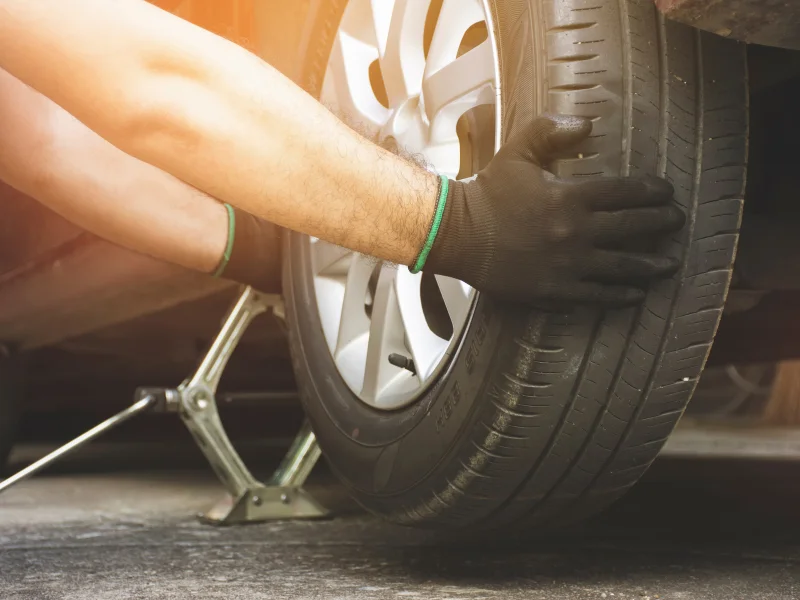
It’s not just mileage that causes RV wheels and tires to break down. Several other factors lead to early aging.
One major cause is sunlight. Rubber naturally breaks down under UV rays, even when your RV stays parked. Cracking on the sidewalls is a warning sign. It often starts small but can lead to serious damage.
Weather matters too. Hot, dry air or cold, wet climates can speed up wear. Improper storage makes things worse. Leaving tires uncovered or parked on wet ground can cause early breakdown.
Long-term parking also puts stress on tires. Staying in one spot for months flattens parts of the tire. This can weaken the rubber and reduce safety.
Tire pressure plays a big role. Driving with low pressure builds heat and wears tires unevenly. This makes a tire blowout more likely while driving.
Proper loading involves evenly distributing weight and checking axle limits to ensure safe and stable RV travel.

By staying alert to these causes, you’ll keep your RV tires safer and stronger for longer.
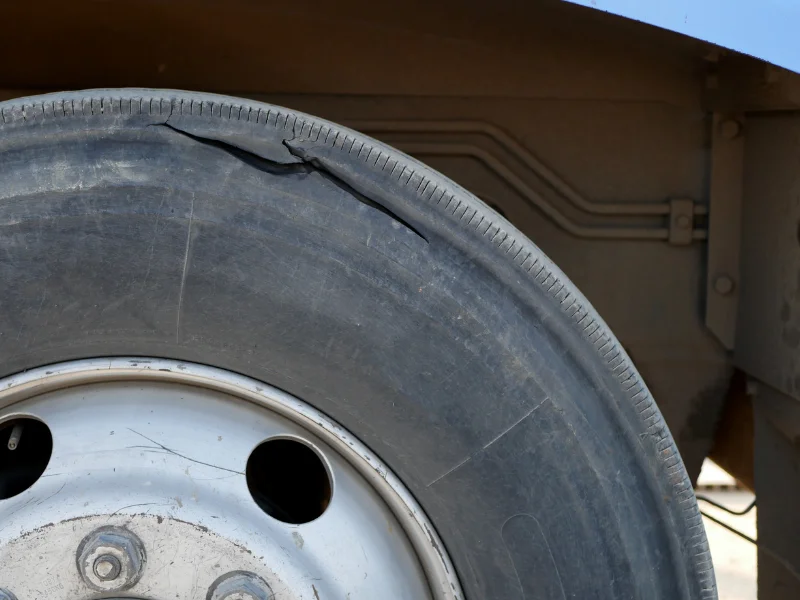

Keeping the right RV tire pressure is one of the easiest ways to make your tires last longer. It can also reduce your long-term costs. Proper pressure protects your tires from early wear and keeps your ride smooth.
If your tires are under-inflated, they flex too much. This creates extra heat and shortens the tire lifespan. It can even cause sudden blowouts. Too much pressure is also bad—it makes the ride rough and wears out the tread in the center faster.
Always check your PSI before heading out. Use a reliable gauge and follow your RV’s manual. A TPMS (Tire Pressure Monitoring System) can help by showing real-time updates while driving. For best results, check your pressure when the tires are cold. This gives a more accurate reading. Making pressure checks a regular habit helps you avoid bigger problems later.
Regularly inspect your tires and make pressure checks a habit to avoid bigger problems later.
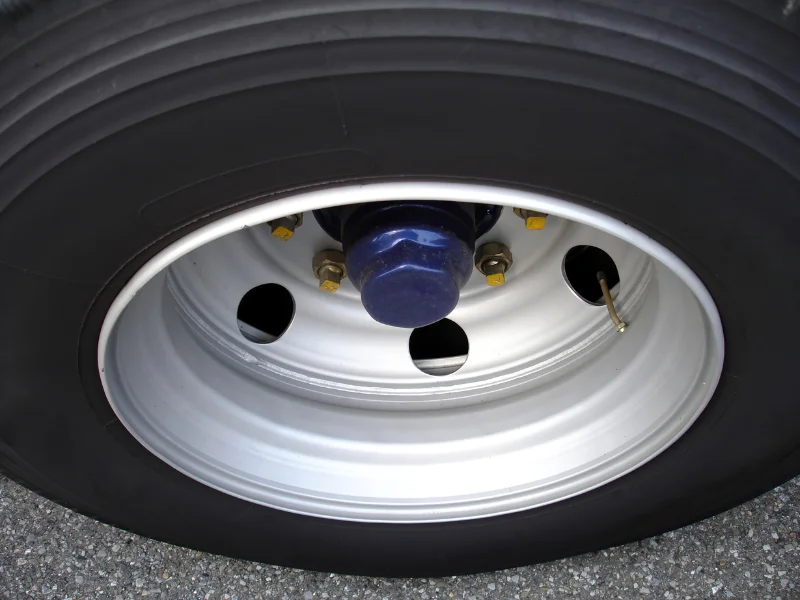
Not sure if your RV tires need rotating or replacing? Both are important, but the right choice depends on their condition.
Start with a simple RV tire inspection. Look for cracks, uneven wear, or old rubber. If the tread looks good and the tires are under six years old, rotation might be enough.
Motorhomes usually need tire rotation every few thousand miles. This helps all tires wear evenly. Trailers, on the other hand, often wear tires faster in the rear. So they may need replacing more often.
When shopping for new ones, choose the best RV tires for your specific vehicle.Choosing the right RV tires boosts safety, enhances ride comfort, and improves fuel efficiency.

Look for sidewall cracking, uneven tread, or bulges. Tires older than 6 years may also need replacement, even with good tread.
Most RV tires last between 25,000 to 50,000 miles, which is considered the average miles on set of tires. But age, road conditions, and maintenance can affect this.
Keep them clean, dry, and off wet ground. Use tire covers and park in the shade. Lift tires slightly if parked long-term.
Yes, they help block UV rays that speed up rubber aging. Covers also protect tires from heat, cracking, and weather damage.
Low tire pressure causes uneven wear and heat buildup. Proper inflation helps tires last longer and keeps your RV safer.
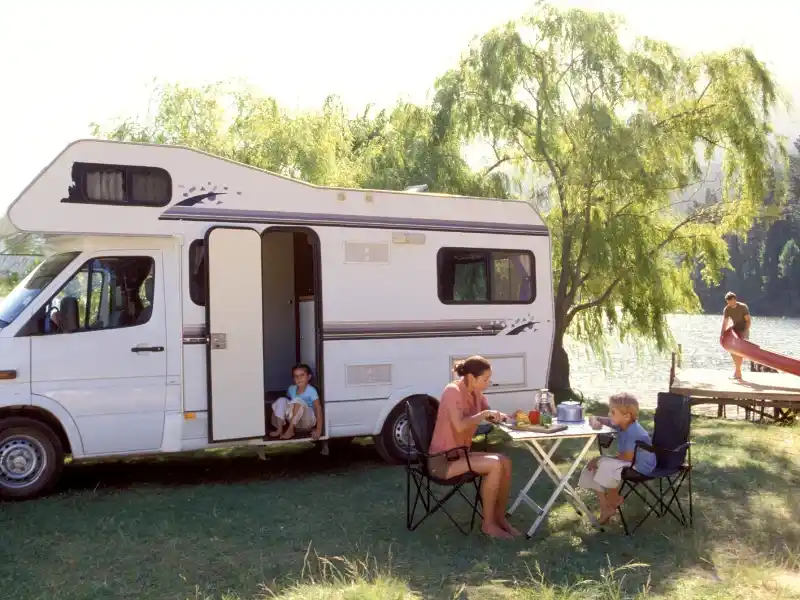
Your tires for an RV play a big role in your safety. A simple routine like checking pressure and tread can make a huge difference. Quick visual checks before every trip help catch small issues early.
Keep inflation levels right, and don’t ignore aging signs. Replacing old tires on time prevents bigger problems later. With regular care and attention, your tires will last longer and perform better. A little effort now means safer, smoother travels down the road.
Want more helpful insights? Check out our guide on What is an RV Park and explore more RV Travel Tips to keep your journey safe and stress-free.





















